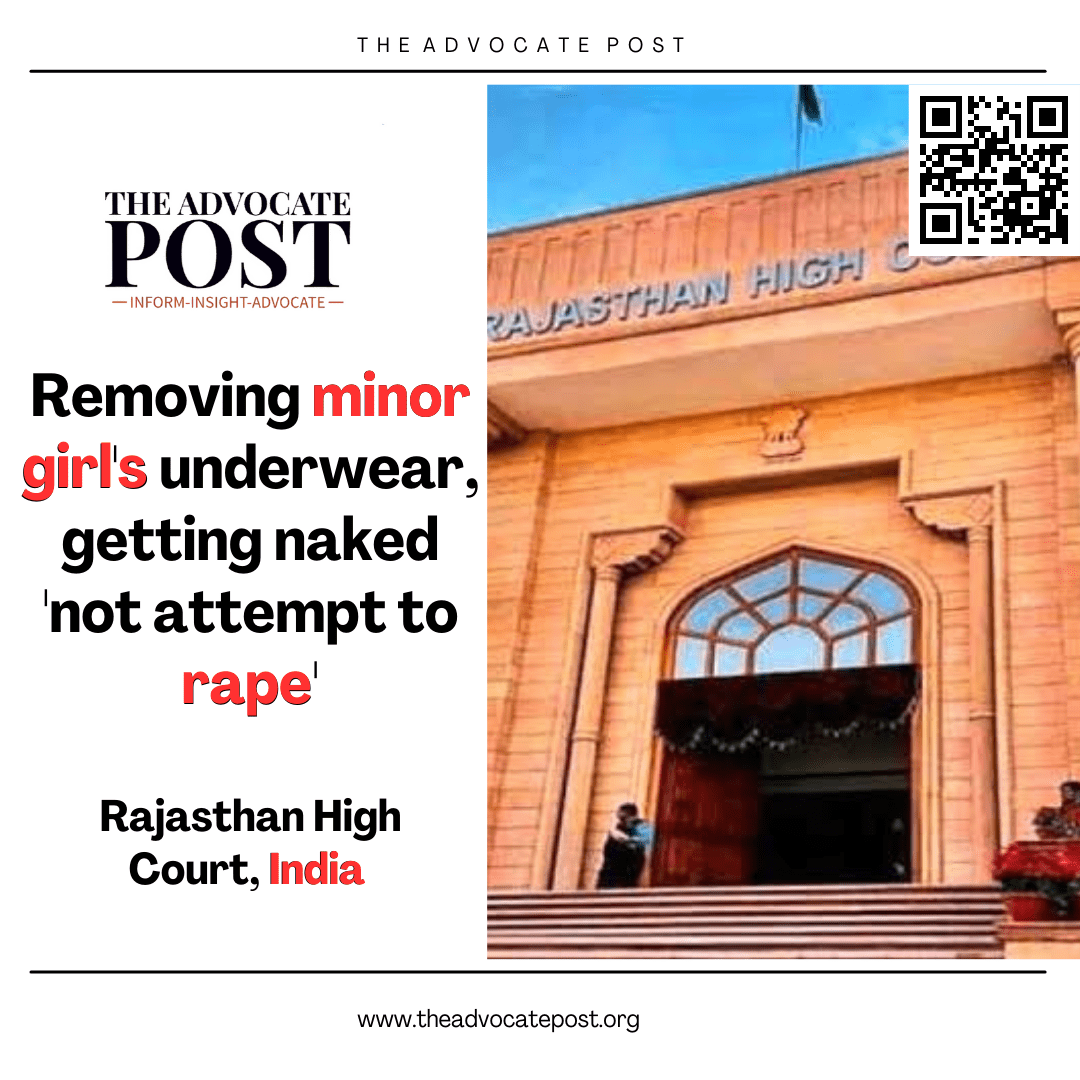News Desk
In a landmark ruling, the Rajasthan High Court, India: declared that the act of removing a minor girl’s inner wear and undressing oneself does not constitute an ‘attempt to commit rape’ but rather falls under the offence of ‘outraging the modesty of a woman’, which is punishable under Section 354 of the Indian Penal Code (IPC).
Case Background
The case dates back to March 9, 1991, in Todaraisingh, Tonk district. The accused, Suvalal, allegedly accosted a six-year-old girl around 8 PM while she went out to drink water, forcibly taking her to a nearby dharamshala where he removed her inner wear and undressed himself. Her cries for help alerted the villagers, who rescued her.
During the trial, the prosecution presented seven witnesses and five documents. The statements of the appellant were recorded under Section 313 of the Criminal Procedure Code (CrPC).
Court’s Ruling
The single bench of Justice Anup Kumar Dhand ruled on May 13, 2024, that the acts in question do not fall under Sections 376 (rape) and 511 (attempts to commit offences) of the IPC. Instead, the court stated that these actions qualify as ‘outraging the modesty of a woman’ under Section 354 of the IPC. Justice Dhand noted that the accused’s actions did not go beyond the preparatory stage.
Section 376 IPC prescribes a minimum imprisonment of seven years, which can extend up to ten years, along with a fine for sexual assault. Section 511 IPC pertains to attempts to commit punishable offences.
The ruling has drawn mixed reactions, particularly due to the lengthy 33-year duration before justice was served. Vidya Reddy, from TULIR (Centre for the Prevention and Healing of Child Sexual Abuse) in Chennai, expressed astonishment at the delay, emphasizing the principle of ‘justice delayed is justice denied’.
Reddy highlighted that the acts of ‘removing inner wear and getting the child naked’ are distinct and need not necessarily indicate rape. She pointed out that without the Protection of Children from Sexual Offences (POCSO) Act, which was enacted much later, the legal interpretation of child sexual abuse was limited in 1991.
Vijay Goyal, a child rights activist in Jaipur, referenced a similar case, Chatu Lal versus the State of Uttarakhand (criminal appeal no 2127 of 2009), where the Supreme Court convicted the accused under Sections 354 and 511 read with Section 376 IPC, despite the victim being an adult.
Swagata Raha, a legal researcher and Co-director of Restorative Practices at Enfold, Bengaluru, noted that the absence of POCSO in 1991 meant that non-penetrative acts of sexual abuse were typically categorized under Section 354 IPC.
The Rajasthan High Court’s ruling underscores the evolving legal interpretations and frameworks surrounding sexual offences. While the verdict aligns with the legal standards of 1991, it highlights the necessity of contemporary laws like POCSO to adequately address and penalize child sexual abuse.
Source: Hindustan Times





